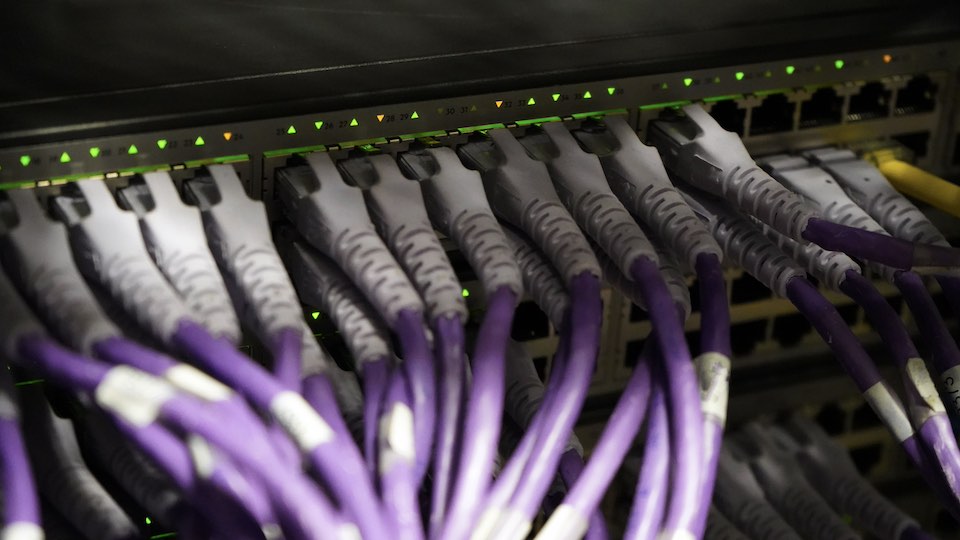More internet shutdowns in 2023 than ever before

In 2023, governments in 39 countries imposed at least 283 internet shutdowns. Millions of people were affected, as Access Now documents in a report released last week. Since the organization began keeping track in 2016, the number of shutdowns has never been so high. The NGO warns of “an alarming and dangerous trend for human rights.”
According to the report, “Shrinking Democracy, Growing Violence: Internet Shutdowns in 2023,” more people in more places were affected by internet shutdowns than ever before. There were an additional 82 shutdowns this year compared to last – in 2022, there were 201 blackouts in 40 countries.
As in previous years, Access Now counted the highest number of shutdowns in 2023 in India, at 116. “Authorities in India continue to use shutdowns as a near-default response to crises,” the report notes. The restrictions are affecting larger areas than in previous years – Access Now gives as an example a shutdown of the internet in the entire state of Punjab which impacted roughly 27 million people in March 2023. In the state of Manipur, roughly 3.2 million people had no access to the internet for more than 200 days.
Many state services can only be accessed online in India; when the internet is down, people are cut off from these services. The economy also suffers under the restrictions.
The NGO documented 37 cases in Myanmar – but assumes that the real number is higher. The government in Iran also cut off access to the internet at least 34 times. In Kenya, Mozambique, Nepal, and Suriname, internet shutdowns were documented for the first time in 2023.
Felicia Anthonio, Campaign Manager at Access Now, said in a statement: “The year 2023 was one of sheer devastation invoked and intensified by internet shutdowns.” Governments had resorted to the measure “in precarious and frightening times.”
Internet shutdowns amidst active conflicts
For the first time, conflicts and wars were the most frequent context in which internet blackouts were imposed: warring parties in nine countries limited access to communication 74 times. Ever more frequently, armies are implementing this measure as part of a strategy to isolate the civilian population from the rest of the world. This puts the people affected in great danger.
People in Sudan, where a civil war has been raging since April 2023, were among those impacted. Even now, parts of the country continue to be completely cut off from telecommunications – while the war has brought on one of the largest humanitarian crises in the world at present.
In Myanmar the military junta in multiple instances disrupted internet and telephone connections in advance of airstrikes on residential areas. Access Now reports that the civilian population under attack was unable to receive information on potential evacuation routes – and attempts to contact family members were made more difficult. According to Access Now, at least eleven of the shutdowns in the country came in connection with documented severe human rights abuses or war crimes. Other countries had also attempted to mask similar abuses in this manner.
The Russian military deliberately destroyed infrastructure in Ukraine, damaging internet connections as well.
Protests and school exams
Access Now documented disruptions in 15 countries in connection with protests, including India and Iran. In Senegal the government blocked first specific platforms and finally the entire mobile internet in response to protests against the arrest of a prominent opposition figure.
In Pakistan as well there were protests following the arrest of former prime minister Imran Khan – which likewise prompted internet shutdowns.
Some governments even see internet shutdowns as a convenient measure for preventing cheating during school or university exams: Access Now documented twelve such cases in six countries, among them Algeria, India, Kenya and Iraq.
The organization documented five cases in connection with elections. It also praised an association of 38 governments that had condemned such measures.
Access Now also identifies an “alarming new development” in the fact that in 2023 at least four countries imposed restrictions in connection with natural disasters. After the devastating earthquake in parts of Turkey and Syria in early 2023 the Turkish authorities at times restricted access to X (at the time Twitter). Access Now criticizes the government’s actions, calling them an attempt to suppress criticism of the government’s response to the catastrophe.
Access Now includes such platform blocks in its count of internet shutdowns – and warns that such measures are increasingly used to cut off entire countries from important communications platforms. They also serve as a means of targeting marginalized groups – for example, people in 12 countries are unable to use the dating app Grindr.
Call to action
Access Now says that governments limit access to the internet in order to cover up human rights abuses and silence critics. This year’s report is meant to serve as a call to action. UN experts also criticize the shutdowns for their impact on human rights.
Access Now calls on warring parties to secure access to telecommunications channels for the civilian population so that people can receive advance warnings of impending danger and communicate with aid organizations and family members.
All countries worldwide should also “adopt legislation that clearly prohibits disruptions” to telecommunications networks and communication platforms. States that currently implement such measures should lift them.
Zach Rosson of Access Now said in a statement: “Access Now and the #KeepItOn coalition cannot underscore enough the gravity of the 2023 internet shutdown landscape. We are at a tipping point, so take this as a wake up call: all stakeholders across the globe – governments, civil society, and the private sector alike – must take urgent action to permanently end internet shutdowns.” (js)